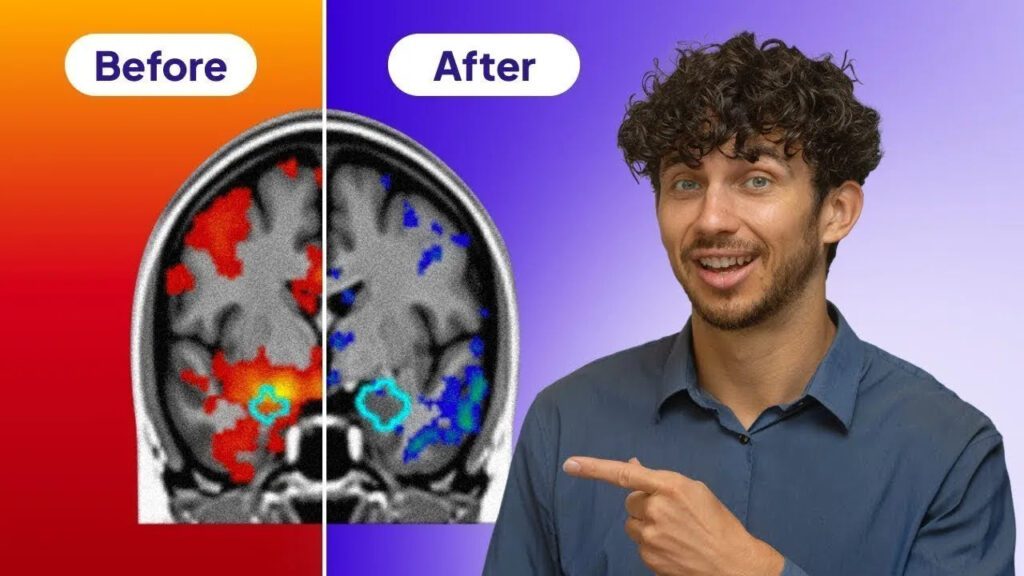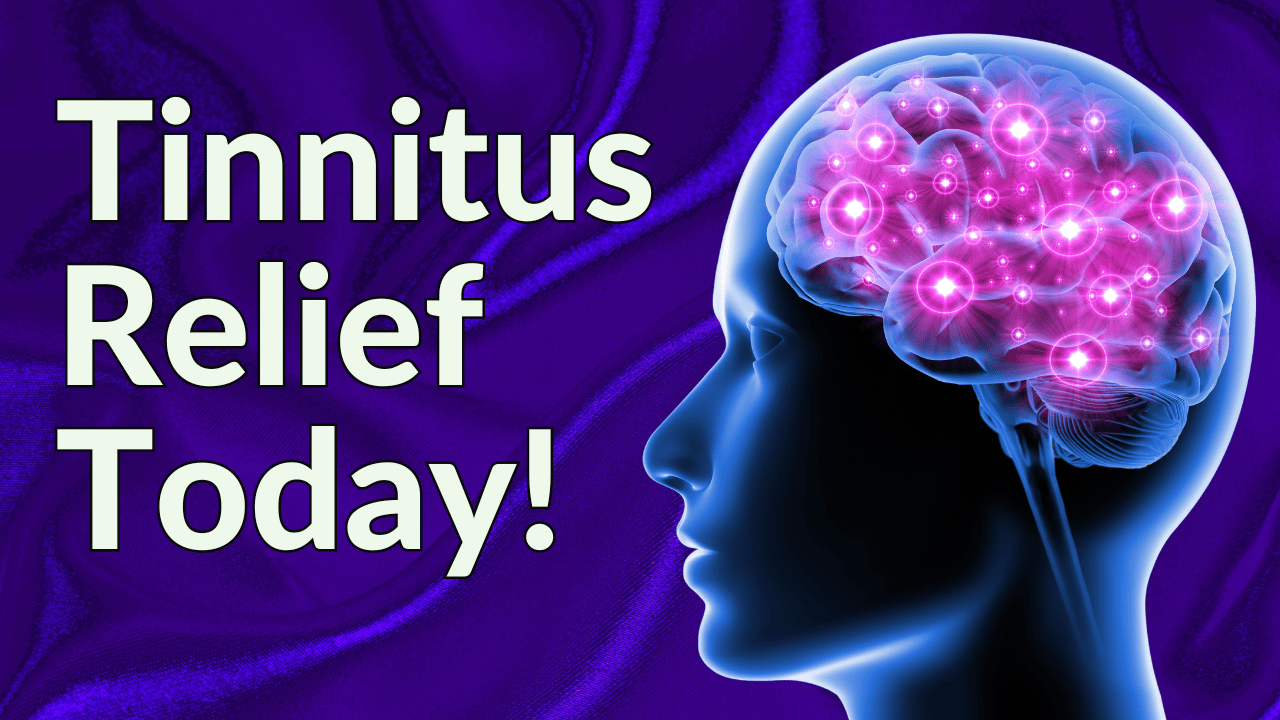Tinnitus can be both bothersome and frustrating. Many patients find that identifying the cause of the ringing in their ears requires numerous doctor visits and specialized tests, which can be time-consuming and expensive. As a result, some patients eventually feel like they’ve tried everything and hit a wall, leading them to give up on tinnitus treatment altogether.
Like most people, the internet is the first stop when they suspect a health issue. While the internet can be a great source of information, it’s also a place where misinformation runs rampant. Tinnitus patients desperate to find relief are sometimes willing to try anything, but without proper medical guidance, this can be a recipe for disappointment.
"As a recent graduate who’s achieved stage four habituation, I cannot thank Treble Health enough for getting me to the finish line."


"As a recent graduate who’s achieved stage four habituation, I cannot thank Treble Health enough for getting me to the finish line."
– Louis
Book a free consultation to learn which Treble Health solution is right for you. Join Louis and thousands more who have found lasting tinnitus relief.
Firstly, tinnitus isn’t a disease or medical condition. Rather, tinnitus describes a symptom of several known (and unknown) health conditions like head/neck trauma, hearing loss, ear blockage, or Ménière’s disease, to name a few. The problem is identifying the condition that causes these phantom sounds. There’s no known cure for tinnitus itself, but in many instances, addressing the underlying condition reduces tinnitus symptoms.
Tinnitus can seemingly pop up out of nowhere and even disappear on its own, and the best way to approach tinnitus treatment is by consulting a medical professional. The experts at Treble Health are at the forefront of tinnitus patient care, prioritizing evidence-based strategies to reduce tinnitus symptoms. The comprehensive treatment approach used by our team helps to stimulate a natural brain process called habituation where the brain relearns how to respond to the phantom sounds, eventually treating the tinnitus as a non-threatening, neutral stimuli which is easier to ignore.
Address The Root Cause
When most patients learn that there’s no cure for tinnitus, they think it means there’s nothing medical professionals can do to help them. While there’s still a lot to learn about tinnitus, we’re still able to address tinnitus based on its root cause. Dr Golenhofen, a German otolaryngologist (ENT), suggests that about 80% of tinnitus cases fall under these three common subtypes:
- Central (changes/disruptions in the central auditory system within the brain)
- Cochlear (abnormalities in the cochlea/ear structures)
- Somatic or somatosensory (head/neck trauma or malformations)
Though this doesn’t cover all tinnitus cases, it’s a start for the majority of patients with these symptoms. Finding the root cause, or in some cases, root causes, allows doctors to tailor a tinnitus plan to individual patient needs.
Practice Mindfulness



Managing tinnitus will ultimately come down to your mindset. We know that there’s no cure for tinnitus, but we also know that stress can contribute to the severity of the symptoms.
A comprehensive tinnitus treatment plan should include more holistic approaches that promote stress management and healthy sleep practices.
An 8-week study in the Journal of Otolaryngology-Head and Neck Surgery explored mindfulness as a potential treatment for tinnitus patients. Mindfulness-based stress reduction (MBSR) was initially developed for stress management but proved useful for health conditions exacerbated by stress levels, such as diabetes, hypertension, immune disorders, and depression.
The researchers discovered that a combination of yoga techniques and meditation was an effective inexpensive and non-invasive option for managing tinnitus. Once incorporated into daily life, these practices can contribute to overall well-being and peace of mind. Some of these strategies include guided breathing, yoga, stretching, and tinnitus dialogue.
Incorporate Sound Therapy
It might seem counterintuitive to introduce sound to the tinnitus brain, especially for patients who deal with loud or continuous tinnitus. However, consistent, targeted sounds played at a specific pitch or volume (such as white noise or pink noise) can either mask the tinnitus sound or give the brain something else to pay attention to. Over time, this should reprogram the brain to learn that the tinnitus sound is nothing to cause distress, or even ignore it altogether.
Sound therapy has proven to be a useful tool for tinnitus patients and specialists alike. A 2020 study by the Journal of the American Academy of Audiology found that sound therapy is more effective at reducing the effects of tinnitus when combined with counseling and mind-body exercise. Sound therapy is especially useful for tinnitus patients with sleep disturbances.
Many hearing aids come with tinnitus technology these days, but the most common way to access sound therapy is through tinnitus apps and websites. We recommend these sounds for tinnitus relief.
Consider CBT



Cognitive Behavioral Therapy (CBT), or traditional talk therapy, helps promote neuroplasticity and is an important addition to any tinnitus management plan. Like mindfulness exercises and sound therapy, CBT conditions the brain to reduce the mind and body’s reaction to tinnitus symptoms over time. When combined with sound therapy, CBT is especially useful in treating insomnia and improving sleep quality.
Here’s why it works: CBT focuses on changing the way people think and behave to improve their mental health and quality of life. Restructuring thoughts and attitudes towards tinnitus, as well as practicing other facets of CBT helps create the psychological environment needed to reduce tinnitus symptoms.
A study in the Journal of Otology and Neurotology found that face-to-face sessions are most effective for addressing tinnitus symptoms. However, CBT can also teach patients with a high awareness of their tinnitus useful techniques they can use outside of a medical setting to gradually reduce their awareness. Tinnitus experts believe that reducing awareness of tinnitus can reduce its volume over time.
Use Hearing Technology
Tinnitus isn’t always a cochlear issue, but many patients with tinnitus also have some degree of hearing loss. Roughly 80% of tinnitus patients will have some high-pitched hearing loss, while only about 10-20% of patients will have normal hearing. A comprehensive hearing test performed by an Audiologist or Hearing Instrument Specialist can determine if your tinnitus falls under this category.
Treating hearing loss often leads to a reduction in tinnitus symptoms, even if hearing itself doesn’t improve. Hearing aids and cochlear implants are typically prescribed depending on the severity of the hearing loss.
More recently, hearing aid manufacturers have released special hearing technology that addresses hearing loss and tinnitus at the same time. They even have special Bluetooth functionalities and app controls designed to reduce tinnitus symptoms on the go and with ease. Nearly 7 out of 10 patients with tinnitus can benefit from hearing technology, or other forms of hearing clarity boost.
Avoid Silence When Indoors
One of the worst things you can do for your tinnitus is to sit in silence. Tinnitus has a strong mental toll, and depriving the brain of other stimuli will make the phantom sounds your main focus.
In a quiet environment, tinnitus sounds can be likened to a candle in a dark room. Since the candle is the only light source in the dark room, all of your attention will be drawn to this one central point. The light might seem bigger, brighter, and more important than it really is. If this is occurring with tinnitus that is already bothersome, you can imagine that for some people, this can trigger feelings of panic, stress, worry, fear, and even anger.
In the analogy of the candle in a dark room, once the lights are flipped on, your brain will immediately have other things to pay attention to. Similarly, the tinnitus sounds are less bothersome because your attention is not on it constantly, and it can fade into the background. Your brain can also decide what it wants to focus on, instead of being forced to only focus on the tinnitus.
Your home environment will play an important role in stimulating habituation during tinnitus treatment. While indoors, consider wearing sound therapy devices or using a good-quality sound machine. Playing instrumental music, or even having a fan running in the background can help reprogram your brain and reach the end goal of habituation to your tinnitus.
Avoiding silence, along with sound therapy and specific information about how tinnitus works forms the basis of Tinnitus Retraining Therapy (TRT). To date, TRT is one of the most effective treatment options for tinnitus symptoms.
Consult A Specialist



Despite having over 30 million patients in the United States alone, tinnitus is still under-diagnosed and under-treated – partly because very few doctors specialize in treating tinnitus symptoms. Some will tell you that you just have to get used to it and that there’s nothing you can do about it, while others will give you basic information, and tell you to reach out if it gets worse. This is one of the worst things a tinnitus patient can hear, and anxiety can even make these symptoms worse.
Finding a specialist to curate a personalized treatment plan is a game changer for tinnitus patients. According to the Ear and Hearing Journal, audiologists play a major role in tinnitus treatment, primarily through sound therapy and CBT-style counseling techniques.
Find A Treatment Plan With the Treble Health Team
Tinnitus can change the way you experience life. Millions of Americans today deal with the disruptive effects of these phantom sounds on their mind and body without the guidance and support needed to manage/overcome them.
The audiologists at Treble Health are ready to help you on your journey towards tinnitus relief. Getting to the root cause, and exploring evidence-based techniques can reduce tinnitus symptoms faster, and give you the peace you deserve. If you’re ready to find the lasting tinnitus relief that you deserve, we urge you to schedule a complimentary telehealth consultation with an expert on our team.
This no-obligation, 20-minute Zoom call will give you the chance to meet with an expert, ask any questions that you may have, and learn about the treatment options that will work best for your specific situation. Don’t put off finding tinnitus relief – get started today with a free consultation.
Next Step: Book Free Consultation
- 75% of patients reduced their tinnitus within three months after following our recommendations.
- "I feel like Treble Health literally gave me my life back." - Randy S. (verified customer)
- Join thousands of people who have reduced their tinnitus after scheduling a free consultation.


















